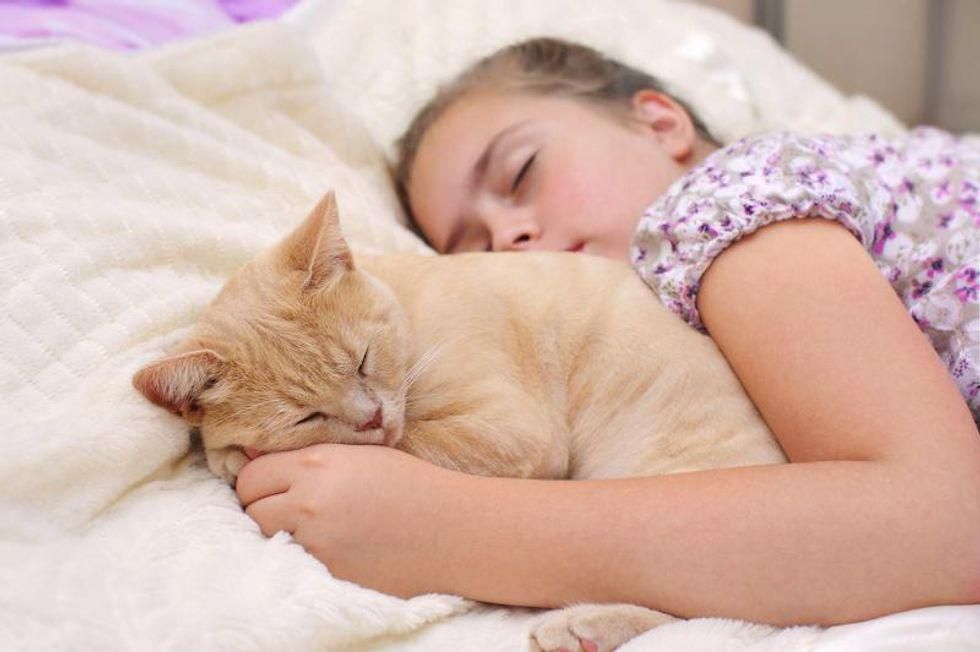THURSDAY, July 1, 2021 (HealthDay News) — Can pets get COVID-19 from their beloved owners? Yes, they can.
In fact, a pair of new studies suggest that COVID-19 is quite common among cats and dogs in households where someone has contracted the virus.
But at a virtual meeting of the European Congress of Clinical Microbiology slated for next week, both research teams will report that infected pets do not, as yet, appear to pose any COVID-19 risk to their owners.
Instead, said investigators, the risk of transmission appears to head in the other direction, with infected owners very often — though not always — passing the virus on to Fido and Fluffy.
“If someone has COVID-19, there is a surprisingly high chance they will pass it on to their pet,” said Dr. Dorothee Bienzle. She’s the lead author of one study, and a professor and veterinary pathologist with the Veterinary College at the University of Guelph in Ontario, Canada.
That’s particularly the case among cats, said Bienzle, who found that cats appear to be considerably more vulnerable to COVID-19 infection via their owners than dogs.
“We knew that [both] cats and dogs are susceptible to COVID-19, but we did not expect such a high infection rate in cats living with COVID-19-positive persons,” she said.
After running antibody tests on 48 cats and 54 dogs drawn from 77 different households in which an owner had been diagnosed with COVID-19, Bienzle and her colleagues found that more than two-thirds of cats in COVID-19 households ultimately came down with the virus, compared with just 43% of the dogs.
Bienzle said that for now it remains unclear precisely why cats appear to be more vulnerable.
“Susceptibility to infection depends on many factors,” she noted, “such as how much of the receptor is expressed in the nose, mouth, eyes, trachea [windpipe] and lung, and how efficiently the virus can get inside cells after binding to the receptor. Those factors are likely different between dogs and cats, but we don’t know for sure yet.”
What Bienzle’s team does know, however, is that the infection vulnerability is far lower among pets who do not live in close proximity to COVID-19 patients. Antibody tests conducted among 75 cats living in animal shelters revealed that less than 10% had antibodies for COVID-19. And among 75 stray cats that were tested, that figure fell to just 3%.
Bienzle’s take-away: “I don’t think there is a broad health threat to humans from pets.”
That conclusion is shared by Dr. Els Broens, a European veterinary specialist in veterinary microbiology at Utrecht University in the Netherlands.
Broens, co-author of the second pet study, agreed that “the most likely route of transmission seems to be from human to pet.”
She and her colleagues came to that conclusion after testing 156 dogs and 155 cats drawn from 196 households with COVID-19-positive household members.
“In 20% of households, pets tested SARS-CoV-2 positive,” Broens noted. “[But] this percentage is rather high compared to other studies in dogs and cats that were not in close contact with COVID-19 positive persons.”
This finding, she said, strongly suggests that it’s “unlikely that pets play a significant role in the pandemic,” with the direction of transmission running from owner to pet, rather than the other way around.
Before pet owners become overly concerned about their furry best friends, both Broens and Bienzle have good news: Although a minority of pet COVID-19 cases may turn out to be severe, both investigations found that when cats and dogs do contract COVID-19 their symptoms are typically mild, and a full recovery is the norm.
And there may actually be simple ways to reduce the risk for pet infection altogether.
To that end, Broens said that infected pet owners should strive “to avoid contact with their pets as much as possible, and to keep their pets indoor as much as possible.”
Similarly, Bienzle said infected owners can protect their pets by handling the situation “the same way that they would protect themselves from an infected person: don’t breathe the same air, keep distance, practice good hand hygiene.”
And that’s particularly important to keep in mind among cats, she said, as the study revealed that infection risk appears to be higher among cats that spend more time with their owners, particularly among cats who sleep in the same bed as an infected owner.
The same concern does not appear to hold among dogs, Bienzle noted, adding that the particulars of cat biology — and their tendency to sleep nearer to their owner’s face than dogs — may explain the heightened risk among felines.
But Bienzle acknowledged that in certain circumstances pet isolation or social distancing simply isn’t possible or practical. Unfortunately in such cases, she said, owners would do well to view their pets “as potentially infected.”
Research presented at meetings is considered preliminary until published in a peer-reviewed journal.
More information
There’s more information on pets and COVID-19 at the U.S. Centers for Disease Control and Prevention.
SOURCES: Dorothee Bienzle, DVM, PhD, professor and veterinary pathologist, Veterinary College, University of Guelph, Ontario, Canada; Els Broens, DVM, PhD, veterinary specialist in veterinary microbiology, and associate professor and director, Department of Biomolecular Health Sciences (clinical infectiology), Faculty of Veterinary Medicine, Utrecht University, the Netherlands; presentation, European Congress of Clinical Microbiology virtual meeting, July 9-12, 2021
Copyright © 2026 HealthDay. All rights reserved.

